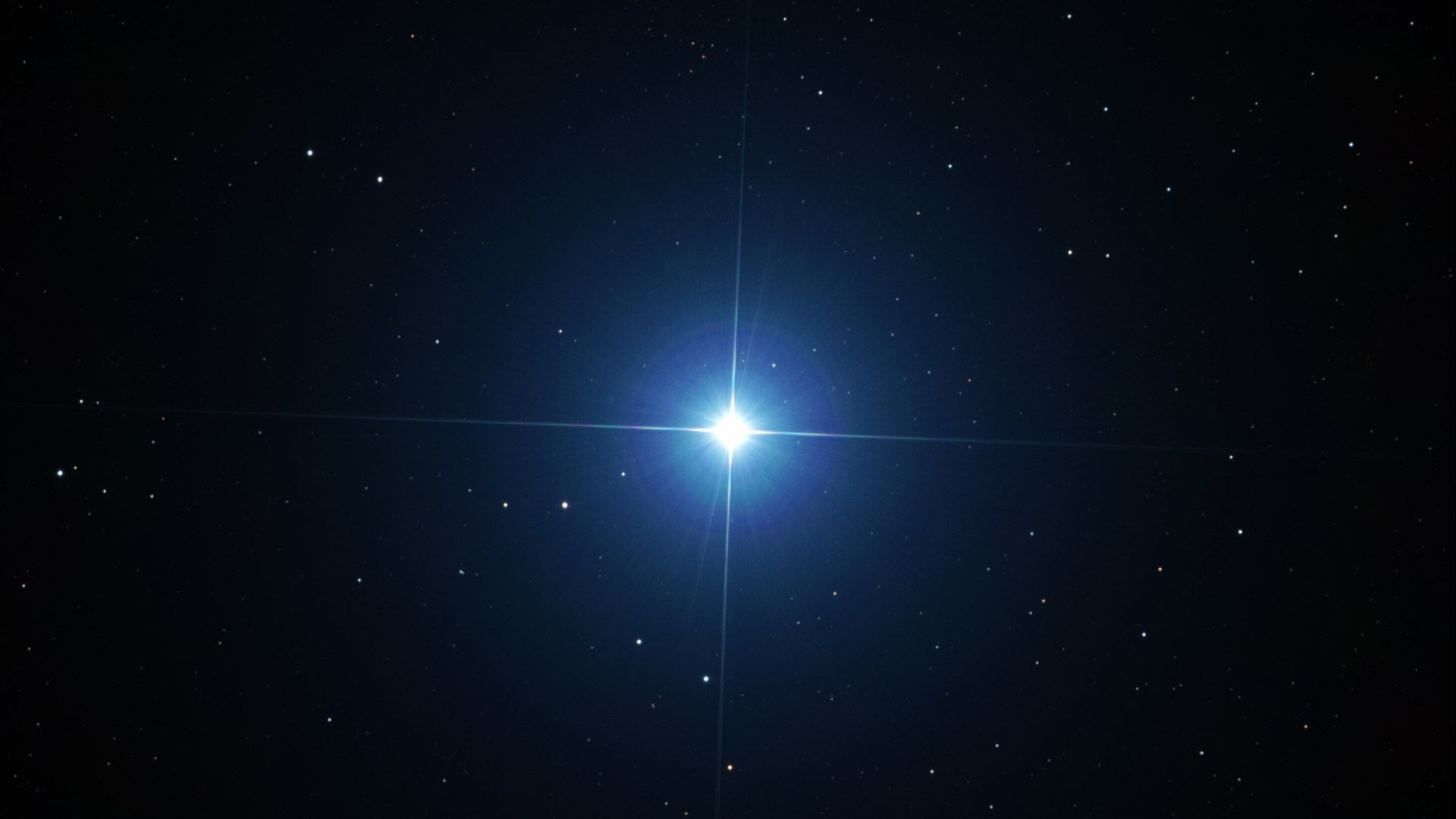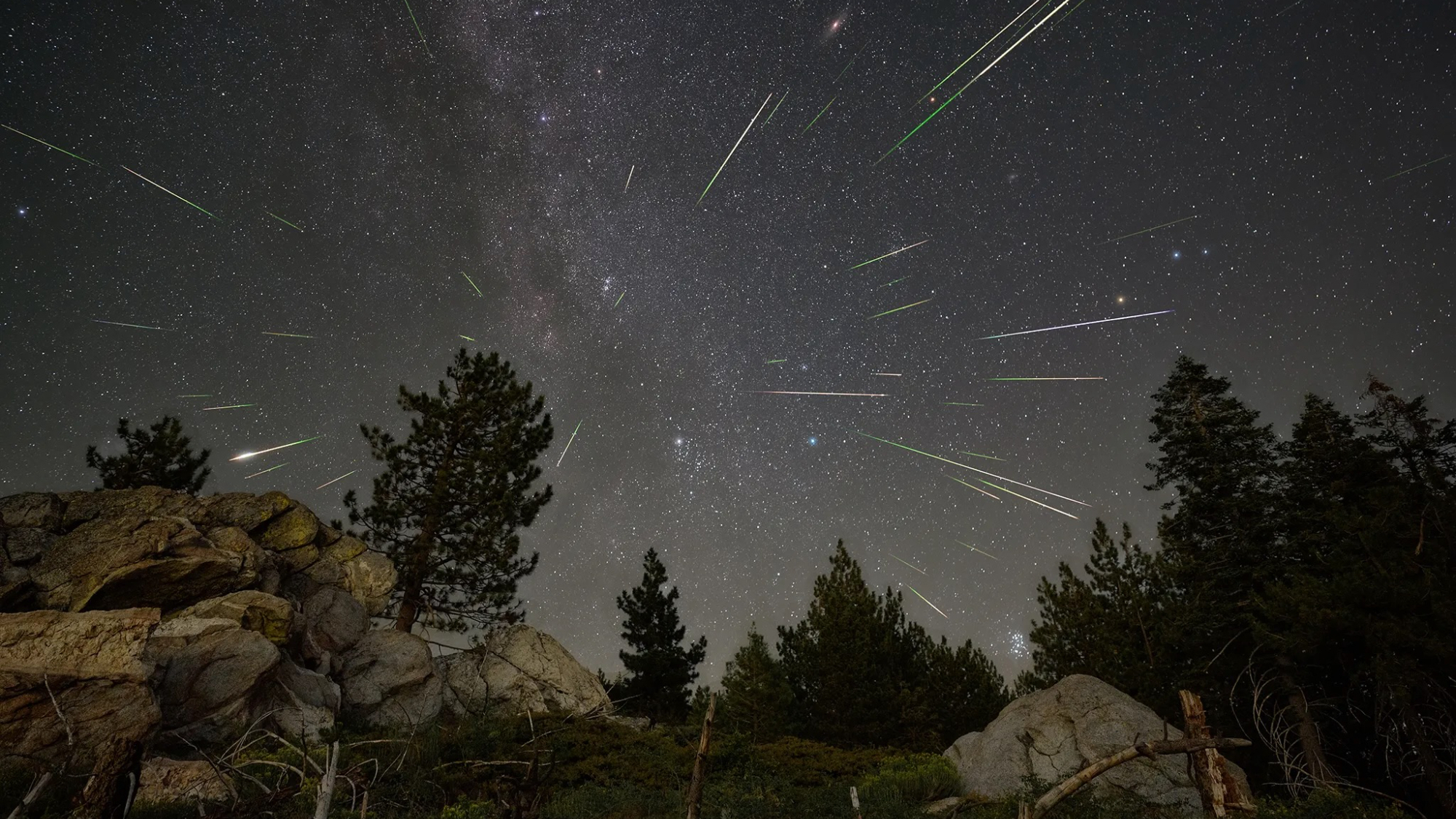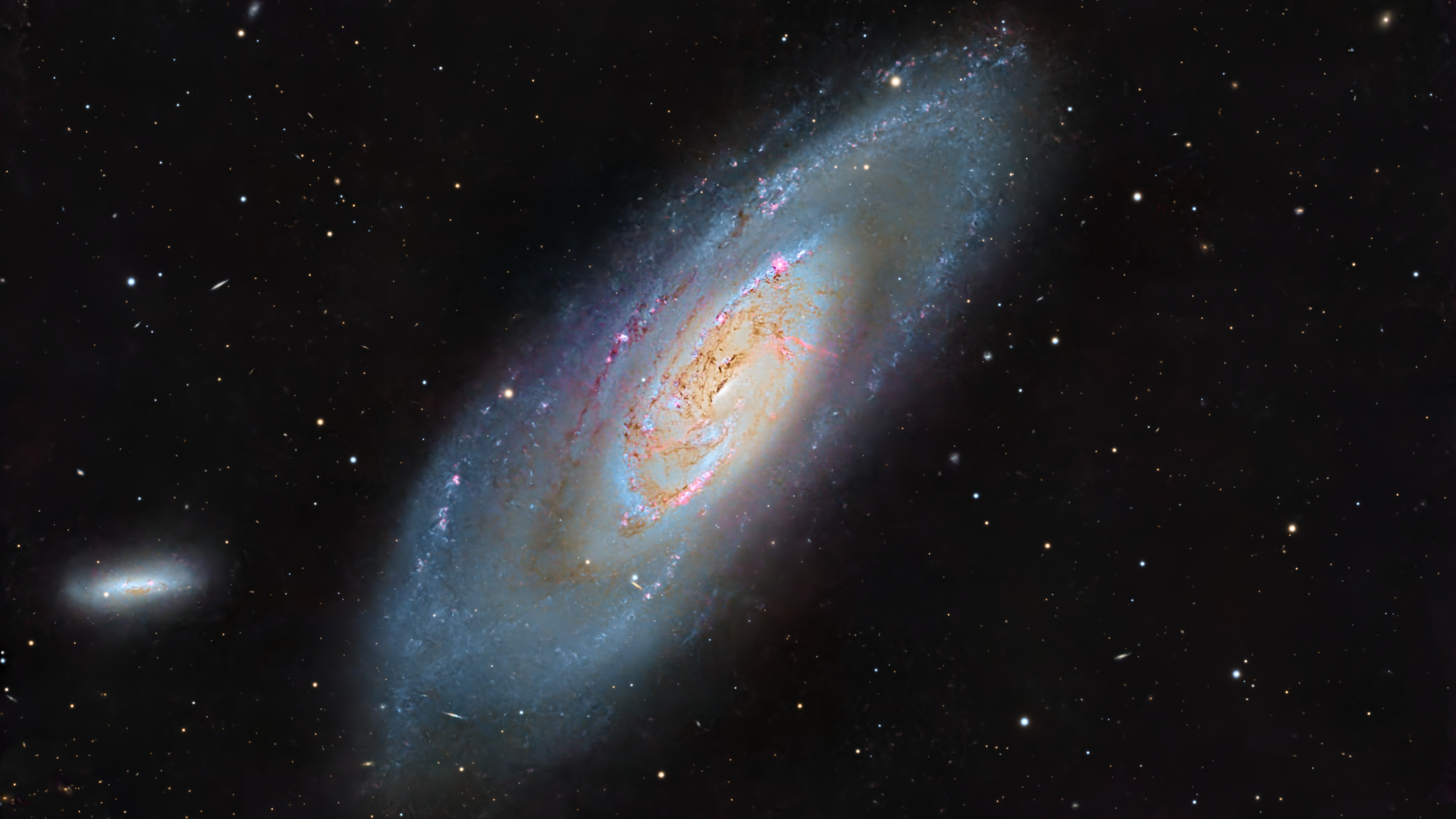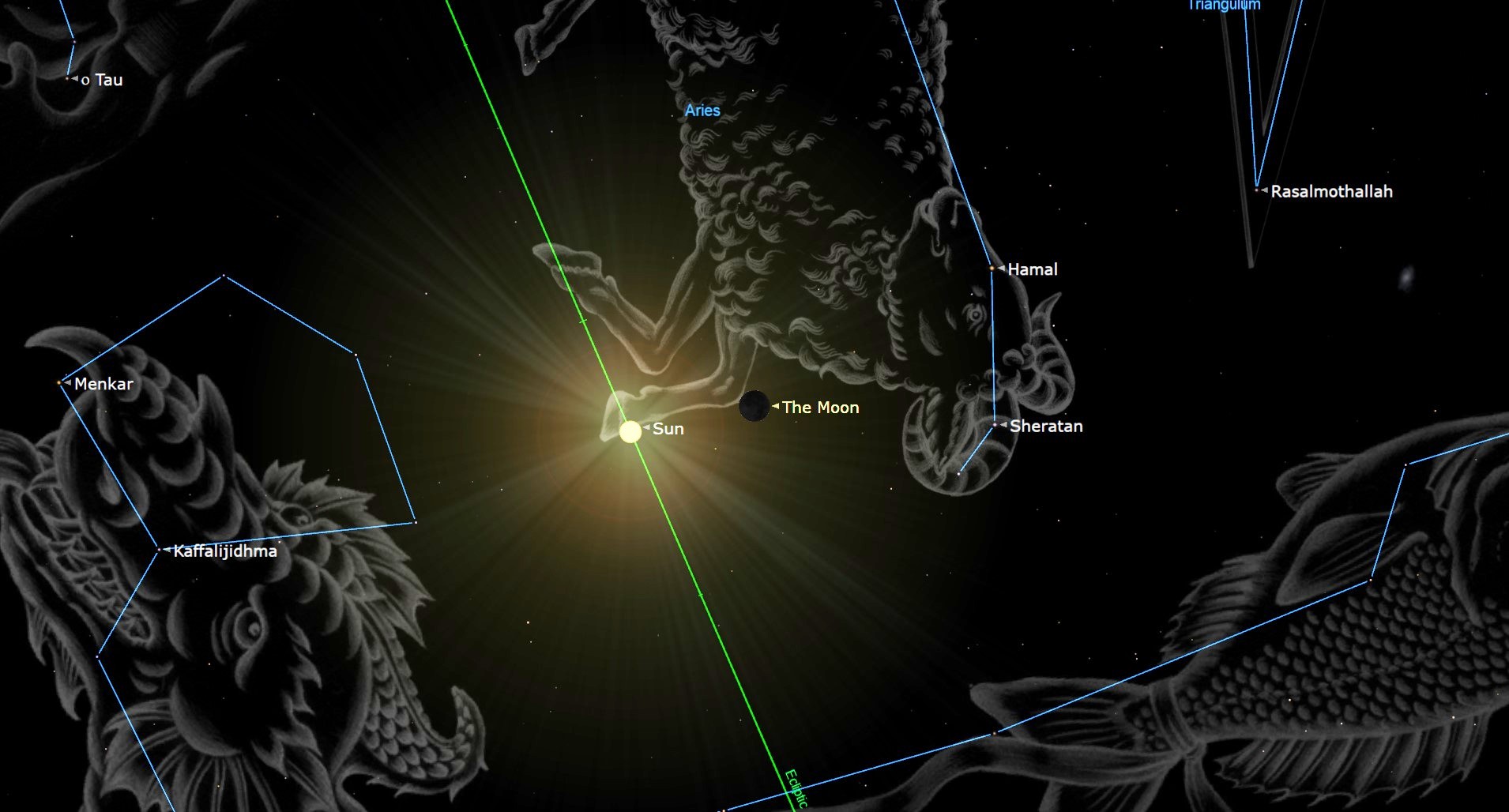Photos: Jupiter, the Solar System's Largest Planet
NASA Probe Spies Jupiter's Moons and Storms in Flyby
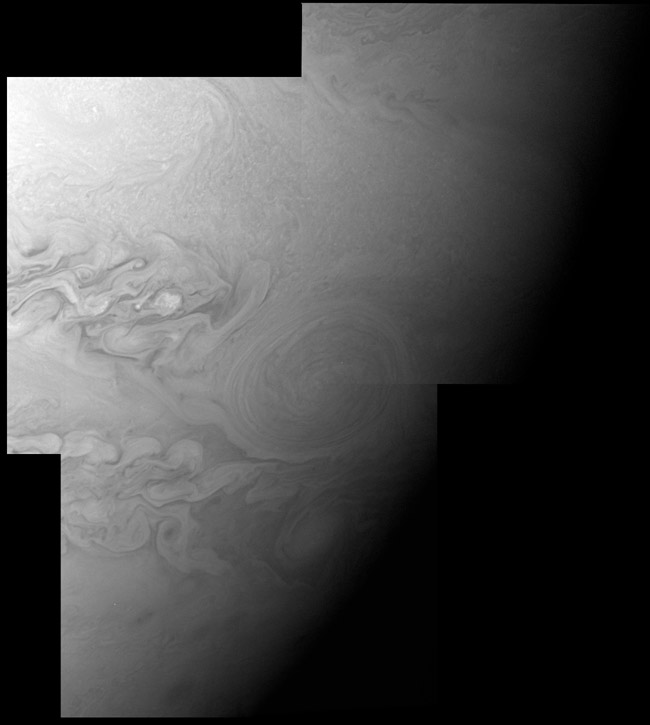
This is a mosaic of three New Horizons images of Jupiter's Little Red Spot, taken at 17:41 Universal Time on Feb. 26, 2007 from a range of 2.1 million miles (3.5 million kilometers). The image scale is 11 miles (17 kilometers ) per pixel, and the area covered measures 20,000 miles (33,000 kilometers) from top to bottom, two and one-half times the diameter of Earth.
Io Creates Spots on Jupiter

Hubble Space Telescope ultraviolet image of the northern pole of Jupiter. Among many other auroral structures, the Io footprint is the most equator-ward feature close to the centre of the image. This spot is always located close to the feet of the magnetic field lines connected to the satellite Io.
New X-ray Image Shows Jupiter's Powerful Sky Lights
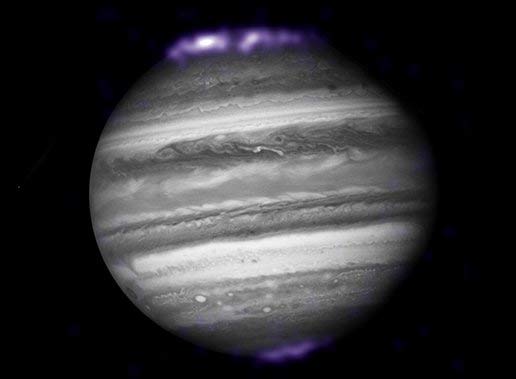
X-ray auroras observed by the Chandra X-ray Observatory overlaid on a simultaneous optical image from the Hubble Space Telescope.
Rare Arctic Springs Hold Clues to Jupiter's Moon Europa
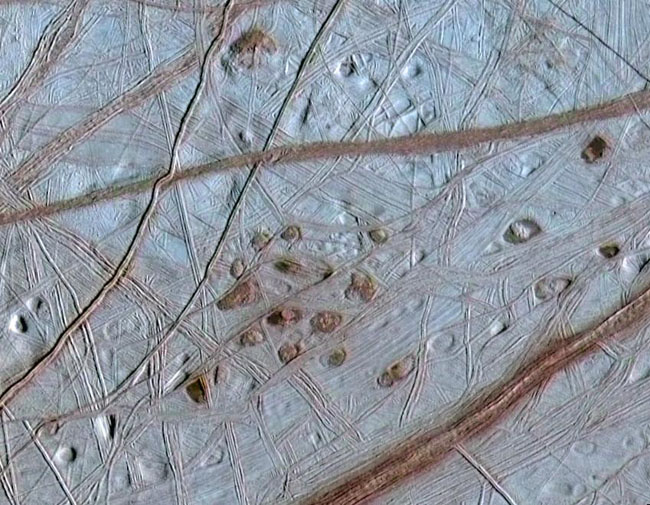
The surface of Europa. Sulfur-rich materials there are concentrated along geological features and may reflect the composition of the subsurface ocean. Image from the Solid-State Imaging instrument onboard Galileo.
NASA Probe Reveals New Views of Jupiter
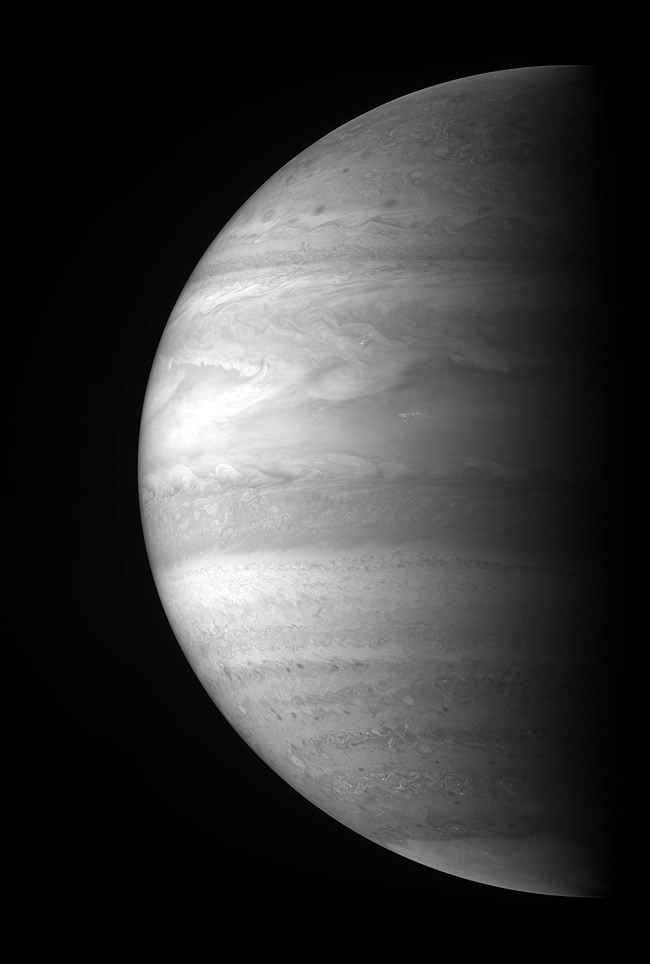
Jupiter's high altitude clouds taken by the New Horizons Multispectral Visible Imaging Camera (MVIC), starting February 28, 2007, when the spacecraft was only 2.3 million kilometers (1.4 million miles) from the solar system's largest planet.
Europa's Hidden Ocean?
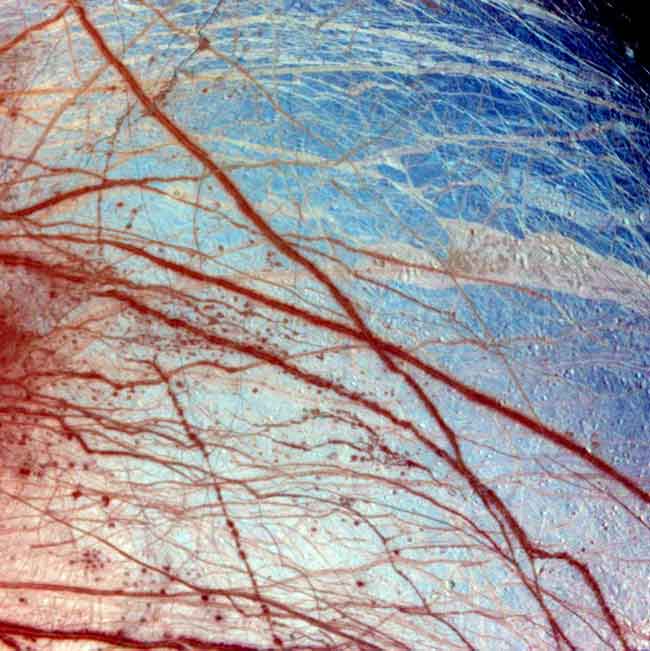
Europa, a moon among many circling Jupiter, appears to have a putative ocean hidden under its frozen surface crust. Tougher cameras, however, will be necessary to scope out the water regions beneath its shell of ice.
Mystery of Io's Atmosphere Solved
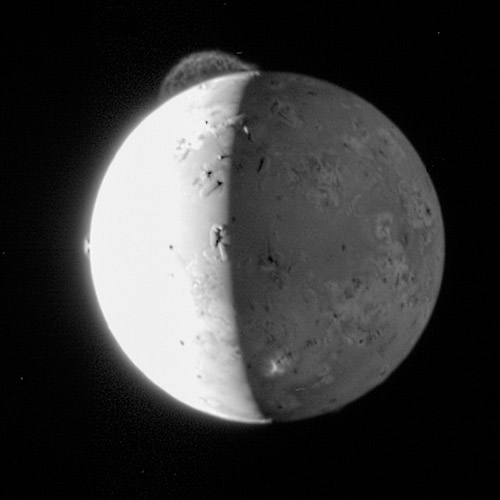
A composite image of Jupiter's moon Io. Volcanic plumes of gas spew sulfur dioxide hundreds of miles into space, as seen by the New Horizons spacecraft. Such activity accounts for a small chunk of the moon's immediate atmosphere, but eventually freezes and builds up a store of the material.
Get the Space.com Newsletter
Breaking space news, the latest updates on rocket launches, skywatching events and more!
NASA Mission Could Find Life on Europa
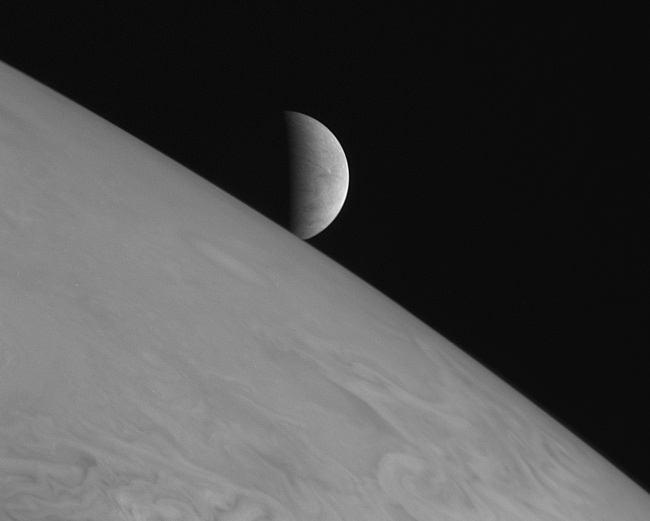
The icy moon Europa rises above Jupiter's cloud tops in this photo taken by New Horizons with its Long-Range Reconnaissance Imager (LORRI) on February 28, 2007, six hours after the spacecraft's closest approach to Jupiter.
Big Fireball on Jupiter Spotted by Amateur Astronomers
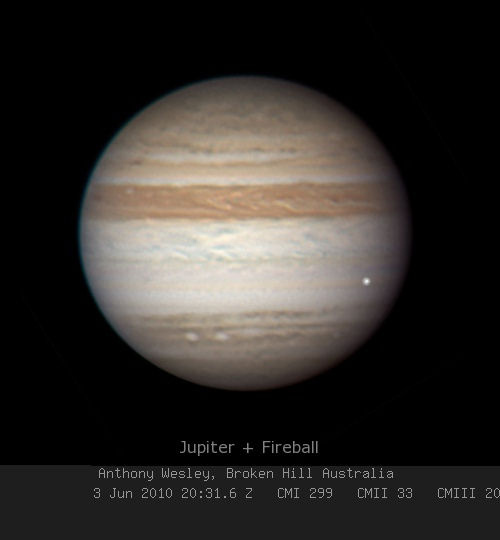
This photo of Jupiter taken June 3, 2010 by Australian amateur astronomer Anthony Wesley shows a bright fireball from an apparent meteor or other object. Skywatcher Christopher Go of the Philippines also caught the event on video. Full Story.
Jupiter's Moon Scarred by Wandering Poles
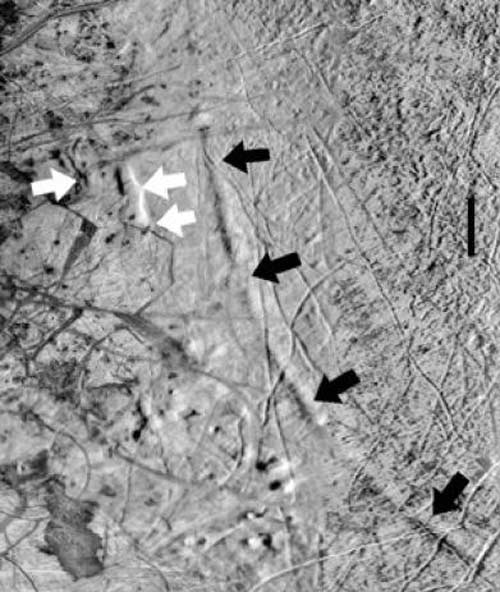
Arc-shaped troughs (black and white arrows) extend 100s of kilometers on the surface of Jupiter's moon Europa. These enigmatic features are likely fractures resulting from a shift in Europa's spin axis. Vertical scale bar (right) is 100 km.
Join our Space Forums to keep talking space on the latest missions, night sky and more! And if you have a news tip, correction or comment, let us know at: community@space.com.

Space.com is the premier source of space exploration, innovation and astronomy news, chronicling (and celebrating) humanity's ongoing expansion across the final frontier. Originally founded in 1999, Space.com is, and always has been, the passion of writers and editors who are space fans and also trained journalists. Our current news team consists of Editor-in-Chief Tariq Malik; Editor Hanneke Weitering, Senior Space Writer Mike Wall; Senior Writer Meghan Bartels; Senior Writer Chelsea Gohd, Senior Writer Tereza Pultarova and Staff Writer Alexander Cox, focusing on e-commerce. Senior Producer Steve Spaleta oversees our space videos, with Diana Whitcroft as our Social Media Editor.






